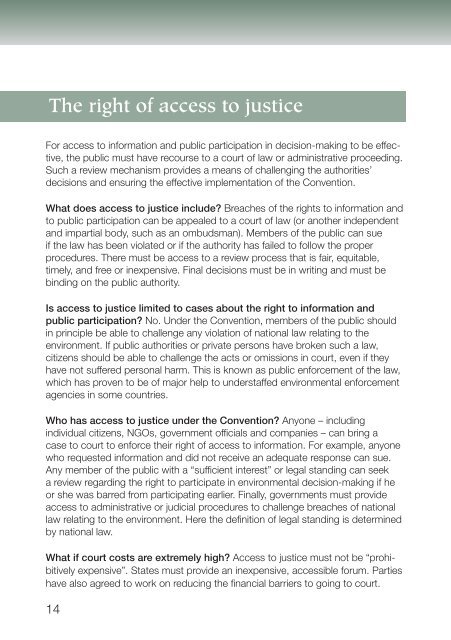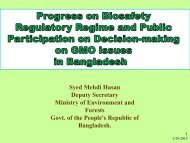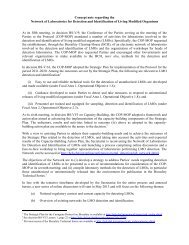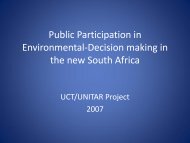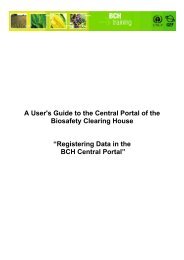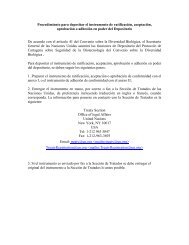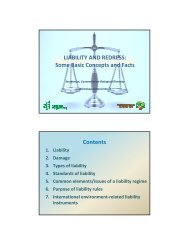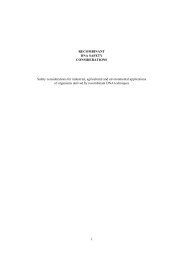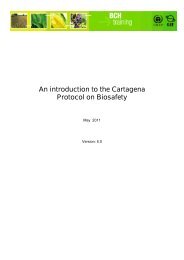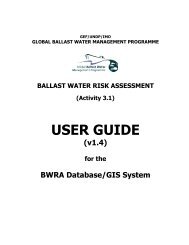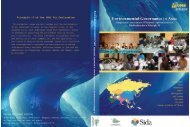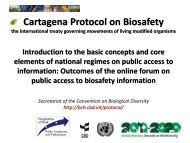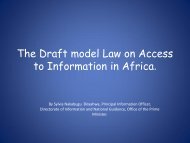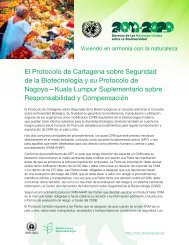Your Right to a Healthy Environment - UNECE
Your Right to a Healthy Environment - UNECE
Your Right to a Healthy Environment - UNECE
- No tags were found...
Create successful ePaper yourself
Turn your PDF publications into a flip-book with our unique Google optimized e-Paper software.
The right of access <strong>to</strong> justiceFor access <strong>to</strong> information and public participation in decision-making <strong>to</strong> be effective,the public must have recourse <strong>to</strong> a court of law or administrative proceeding.Such a review mechanism provides a means of challenging the authorities’decisions and ensuring the effective implementation of the Convention.What does access <strong>to</strong> justice include? Breaches of the rights <strong>to</strong> information and<strong>to</strong> public participation can be appealed <strong>to</strong> a court of law (or another independentand impartial body, such as an ombudsman). Members of the public can sueif the law has been violated or if the authority has failed <strong>to</strong> follow the properprocedures. There must be access <strong>to</strong> a review process that is fair, equitable,timely, and free or inexpensive. Final decisions must be in writing and must bebinding on the public authority.Is access <strong>to</strong> justice limited <strong>to</strong> cases about the right <strong>to</strong> information andpublic participation? No. Under the Convention, members of the public shouldin principle be able <strong>to</strong> challenge any violation of national law relating <strong>to</strong> theenvironment. If public authorities or private persons have broken such a law,citizens should be able <strong>to</strong> challenge the acts or omissions in court, even if theyhave not suffered personal harm. This is known as public enforcement of the law,which has proven <strong>to</strong> be of major help <strong>to</strong> understaffed environmental enforcementagencies in some countries.Who has access <strong>to</strong> justice under the Convention? Anyone – includingindividual citizens, NGOs, government officials and companies – can bring acase <strong>to</strong> court <strong>to</strong> enforce their right of access <strong>to</strong> information. For example, anyonewho requested information and did not receive an adequate response can sue.Any member of the public with a “sufficient interest” or legal standing can seeka review regarding the right <strong>to</strong> participate in environmental decision-making if heor she was barred from participating earlier. Finally, governments must provideaccess <strong>to</strong> administrative or judicial procedures <strong>to</strong> challenge breaches of nationallaw relating <strong>to</strong> the environment. Here the definition of legal standing is determinedby national law.What if court costs are extremely high? Access <strong>to</strong> justice must not be “prohibitivelyexpensive”. States must provide an inexpensive, accessible forum. Partieshave also agreed <strong>to</strong> work on reducing the financial barriers <strong>to</strong> going <strong>to</strong> court.14


